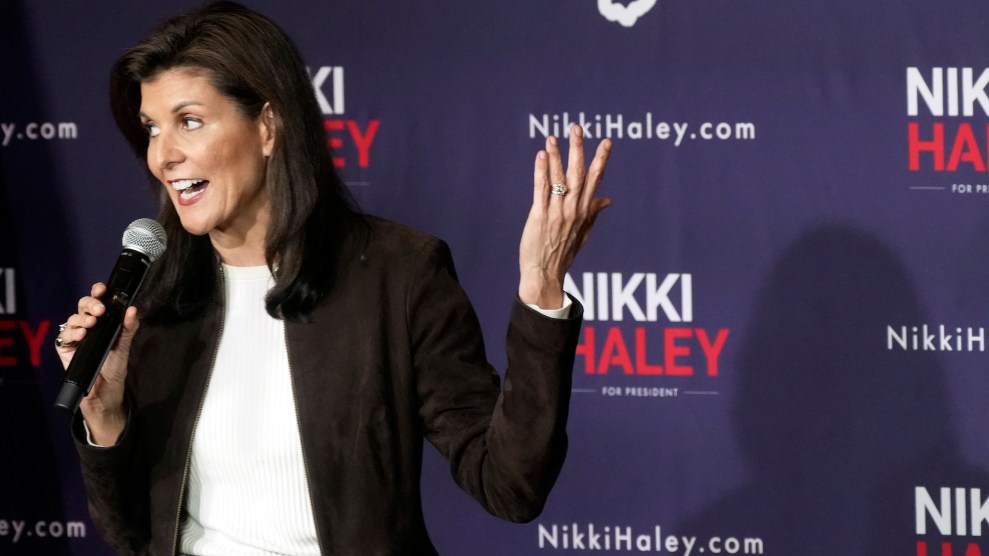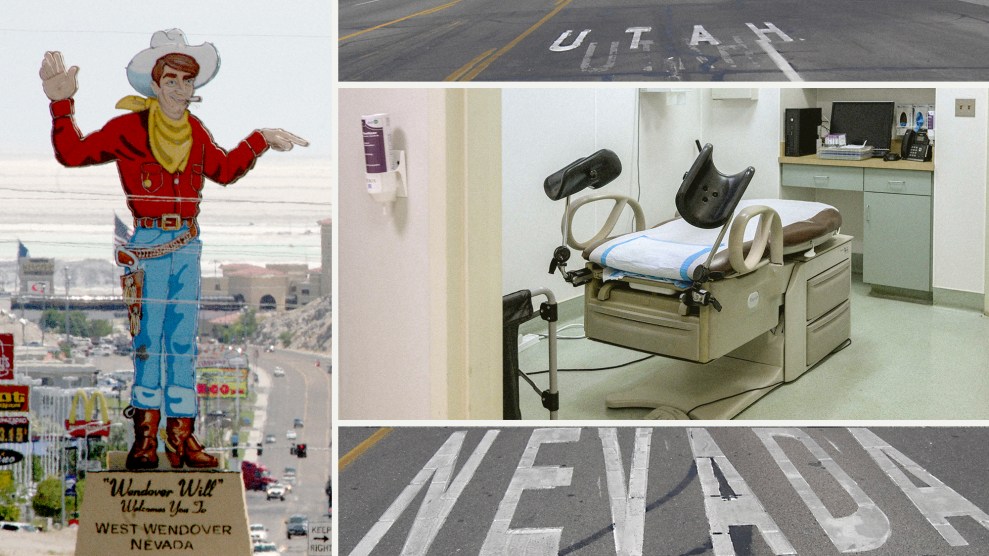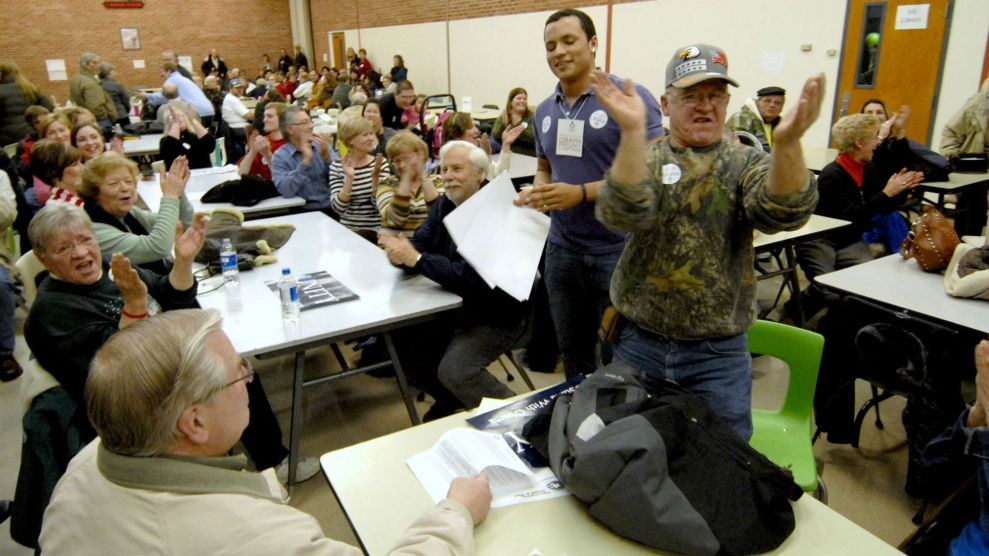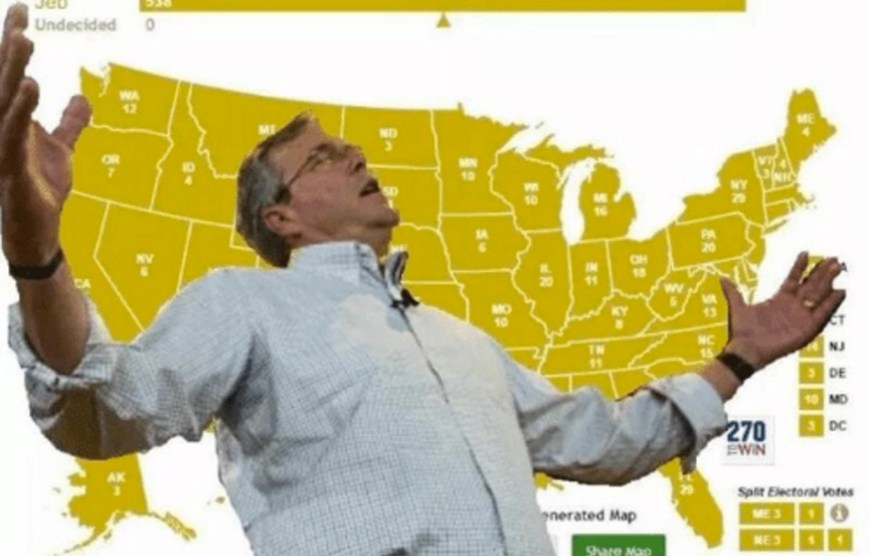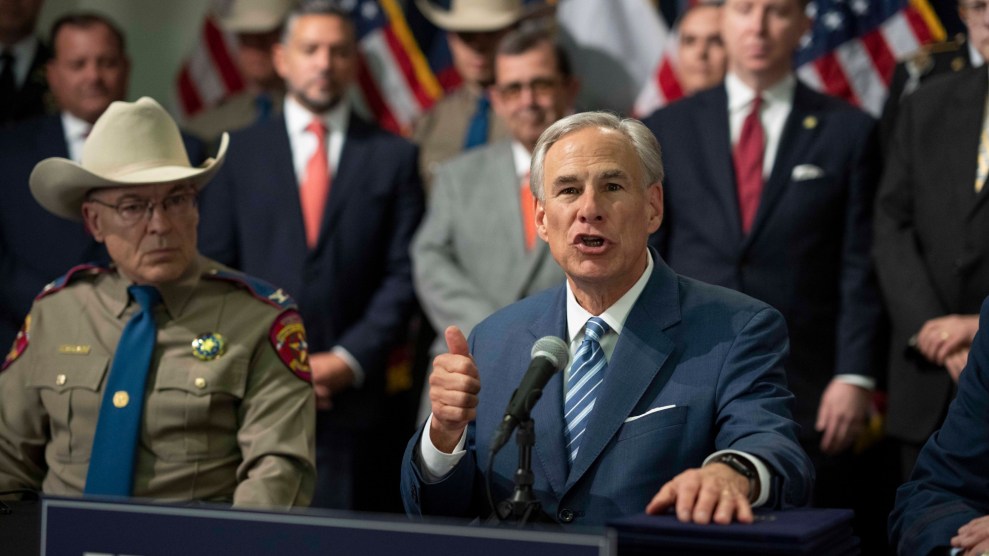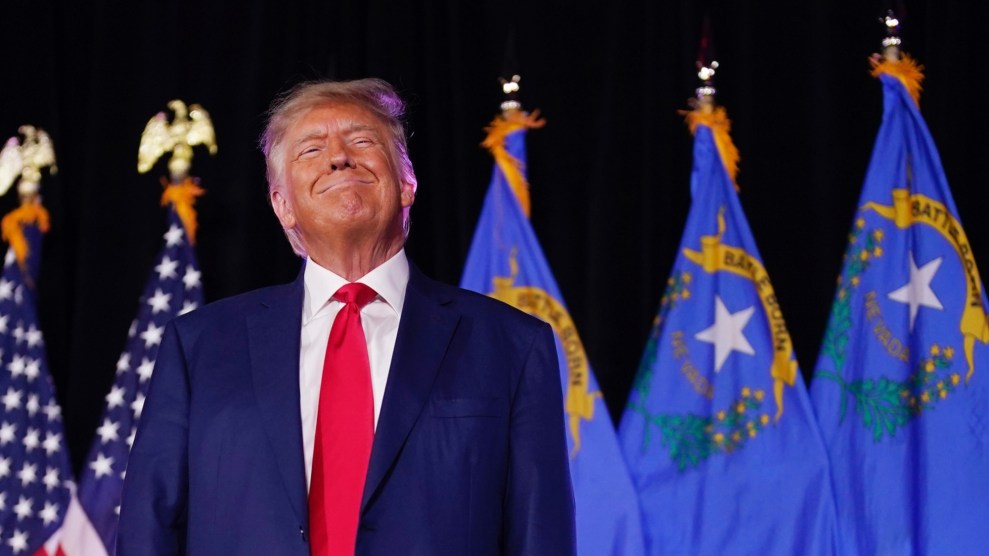
Trump in Nevada, July 2023.John Locher/AP
Thanks to a new law, Nevada residents seeking to cast a ballot in the Democratic or Republican presidential primaries on Tuesday were able to vote early, vote by mail, show up and use any polling station, and register to vote on Election Day.
But for Republicans, Tuesday’s open-arms primary will not dictate the party’s delegates to the national nominating convention. Instead, Nevada Republicans have insisted on reserving that role for their own caucus system, which will take place Thursday night. And unlike the state-run primary, the GOP caucus seems to feature nearly every measure Republicans have pined away for over the past 20 years to restrict access to the ballot.
In Nevada, “we’ve got serious issues with election integrity, such as mail in ballots, the use of machines, no voter ID, early voting, counting ballots for a week after the election,” explains Nevada RNC committeewoman Sigal Chattah, who represented the state party in a lawsuit challenging the 2021 law that attempted to move the state to a primary system. “The Nevada GOP chose to go with what the Republican ideology is on election integrity. The only way to do that is through a caucus.” Indeed, the Nevada GOP has created a graphic touting the merits of its caucus over the state-run primary, that gives the caucus boastful green checks for things like “transparent tabulation,” “Election Day Not Election Month,” and “paper ballots.”
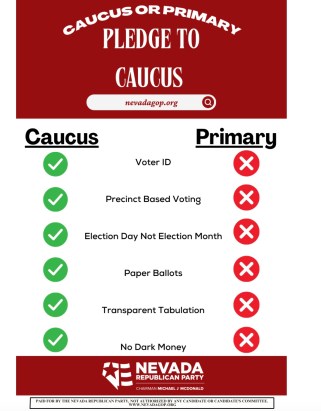
Republicans have long favored measures that make it harder to vote, claiming they’re needed to root out voter fraud, despite a dearth of evidence that such fraud is a problem in American elections. In the aftermath of 2020, Trump supporters, convinced Biden stole the election, have worked nationwide to roll back mail-in voting and other democratic reforms. Those efforts failed in the Nevada legislature, which rejected voter ID laws and restrictions on mail-in ballots. So state Republicans are instead imposing such rules on their own members.
But it’s not just the spectre of voter fraud the party is seeking to keep out of its caucus—it’s also liberals. Chattah explains that “at our caucus, you are required to be a registered Republican for at least 30 days, as opposed to the state of Nevada, where we have same day registration.” The rule is designed to prevent pesky Democrats or independent voters from figuring out how to crash the caucus and swinging the vote to say, Ryan Binkley, a little-known Texas businessman who says he was called by God to seek the GOP nomination, and who is Trump’s only opponent on Thursday.
Of course, such rules are also likely to keep out a lot of actual conservatives. So will caucus procedures that require Nevada’s 650,000 or so registered Republicans to vote only in person, between 5 and 7:30 pm on Thursday night, in their own precinct. Everyone will need official ID. The only people allowed to submit an absentee ballot are those in the military and, technically, people with disabilities. But good luck to them: Chattah says people requesting ADA accommodations must submit an affidavit, photo ID, and proof of disability to get a mail ballot.
Chattah doesn’t seem too concerned that the restrictive rules might depress turnout. “Historically, people that participate in caucuses,” she explains, are “the people that participate in politics.” In other words, activists and party insiders who are likely to know the rules will still turn out to vote for Trump.
In past presidential elections, Chattah says about 75,000 people have come out for the party’s caucuses, showing up during a small window of time at their local precincts. By comparison, more than 150,000 voters cast ballots in Tuesday’s essentially uncontested Nevada primaries, including nearly 60,000 Republicans who took part in their meaningless contest. Roughly 21,000 of them voted for Nikki Haley and are unlikely to participate in a caucus she argued was rigged in Trump’s favor and where she chose not to appear on the ballot.
If the situation in Nevada seems a little screwy, that may be because the party leaders responsible for it have promoted the lie that the 2020 election was stolen; several actually tried to help President Donald Trump attempt to overturn the results. Three of the state party’s top seven officials were indicted in December after taking part in the Trump campaign’s fake electoral voters scheme. They face state felony charges that could send them to prison for up to nine years, with a trial slated for early March.
But until then, the fake electors are in charge of Thursday’s caucus, and its aftermath—including ensuring that hand-counts of paper ballots from more than 1,500 precincts are tabulated and released before midnight as promised. Let’s hope no one asks for a recount.

